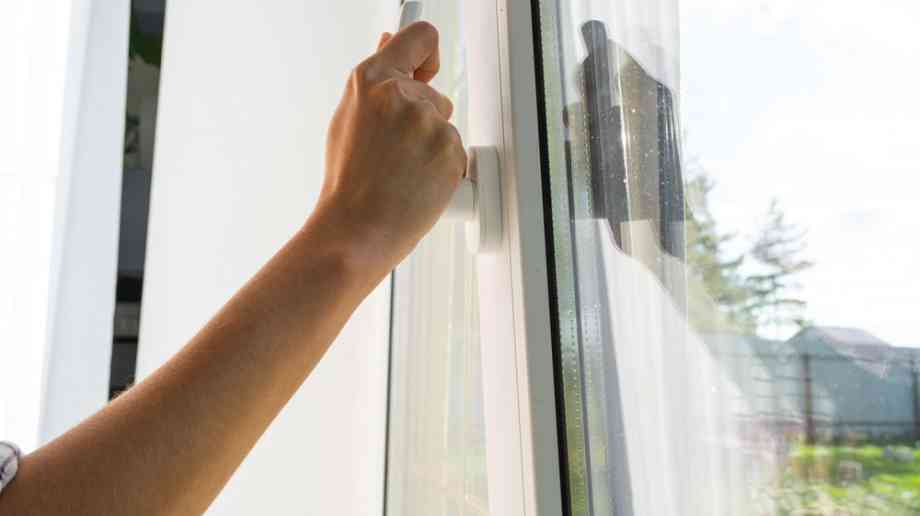
Why replacing old windows is a smart investment for everyone
Robyn Millen from the Glass and Glazing Federation explains the benefits of good quality windows.
Back in 2019, the government revealed their Net Zero Target for 2050, announcing their dedication to cut the UK’s carbon emissions by 80 per cent. Currently in Europe, the homes in the UK rank among the least energy efficient.
To achieve these targets, 80 million windows in homes across the country need to be replaced, as they are inefficient and at least 20 years old. Twenty four per cent of the UK’s carbon emissions come from the residential sector, highlighting the significant contribution of residential activities to the overall carbon footprint in the UK.
Carbon emissions from the residential sector mainly result from energy consumption for heating, cooling, and powering appliances in homes, making energy efficiency in residential buildings crucial for reducing carbon emissions and combating climate change. ‘A Window of Opportunity,’ a collaborative report published last year by the Glass and Glazing Federation and British Glass, revealed that windows installed today perform significantly better than older double glazing and single-glazed windows, potentially saving residents in the UK up to £395 per year off their energy bills.
There are multiple reasons why local authorities and residents should be swapping out old windows with newer, more energy-efficient replacements, such as:
Enhanced insulation
Older windows, particularly those fitted before 2002, often lack sufficient insulation.
This means they let heat escape during colder weather and allow warmth to infiltrate your property on hot days. Consequently, occupants end up relying more on heating and cooling systems to keep a comfortable indoor temperature, which results in a higher energy use and causes properties to expel greater carbon emissions.
Decreased energy usage
Upgrading to energy-efficient windows enables tenants to slash their energy consumption for heating and cooling.
Thanks to their superior insulation properties, energy-efficient windows help keep stable indoor temperatures, requiring less energy. Improved sealing and draft prevention Over time, old windows can develop gaps, cracks, or worn seals, allowing drafts to pass through the home. These drafts lead to energy wastage as heating or cooling systems overwork to compensate for the lost air. Newer, energy-efficient windows are thoroughly designed and installed to minimise air leakage and prevent drafts.
The Building Regulations Act 2002
The Building Regulations Act 2002 states that any replacement windows installed after 2002 must meet specific energy efficiency standards. They must achieve a minimum energy performance rating of ‘C’ or higher, and doors must be E or above, with exceptions for historic properties and conservation areas.
This is to comply with the Energy Performance Certificate provided by a local authority, such as the British Fenestration Rating Council (BFRC).
What are the benefits for a home?
Upgrading old windows offers multiple benefits for a home, including enhanced comfort and heightened security, making it a wise investment for occupants. Upgraded windows often come with advanced security features, enhancing the safety and protection of the home against intruders.
By replacing the old windows in your home with new double glazing that meets current energy efficiency standards, a home can significantly reduce its energy usage and carbon emissions and as the importance of cutting energy bills and reducing emissions from each homes grow, investing in energy rated windows and doors has never been so important.
New windows can also enhance the overall aesthetic appeal of a home, boosting its curb appeal. Another benefit of replacement windows includes improved sound insulation, provided by modern windows helps create a quieter indoor environment, shielding occupants from external noise pollution.
What is a BFRC rating and why is it helpful?
The BFRC energy rating is an energy balance of positive contributions from solar gain minus the negative factors of thermal heat loss and air leakage, and BFRC rainbow ratings are a consumer-friendly way to prove product performance to homeowners. Windows are rated using an A++ to E scale to symbolise the total energy efficiency of the windows.
The higher the rating the better the performance. Windows and doors with an energy rating from A to A++ are considered to be energy positive.
When you purchase a BFRC rated product, you are making sure the energy efficiency of the whole window or door system you are buying has been independently tested to determine how well it keeps heat in (U-value), the amount of energy available from the sun (G-value), and the amount of air leakage (L-value).
BFRC ratings serve a purpose beyond just compliance with regulations; they help you in selecting the right energy performance to enhance the comfort of your home. By fitting BFRC rated energy efficient windows and doors, they can assist you in reducing your energy bills.
What can I do?
Adhering to energy efficiency standards and utilising energy rating councils like BFRC ensures informed decision-making, promotes sustainability and reduces environmental impact. As energy prices escalate and the importance of reducing carbon emissions grows, the case for investing in energy-rated windows and doors becomes increasingly compelling. By embracing window replacement, homeowners not only enhance the performance and aesthetics of their homes but also contribute to a greener, more sustainable future for all.
The imperative to replace old windows with energy-efficient alternatives cannot be overstated. With the UK government’s ambitious Net Zero Target for 2050 and the pressing need to reduce carbon emissions, upgrading windows in homes across the UK is a pivotal step towards achieving energy efficiency in households.
In summary, replacing old windows offers a range of benefits, including improved energy efficiency, enhanced comfort, increased property value, better sound insulation, and enhanced security. Replacement windows are a practical and effective way for residents to enhance the overall quality and performance of their homes while enjoying long-term cost savings.


